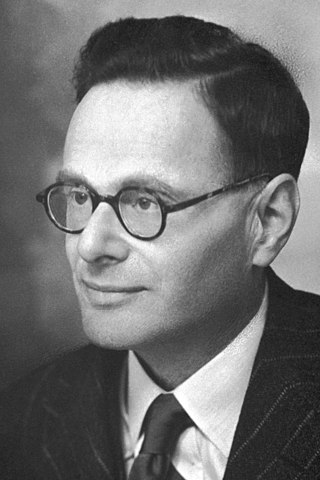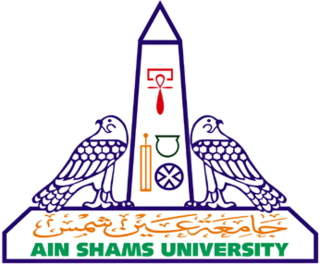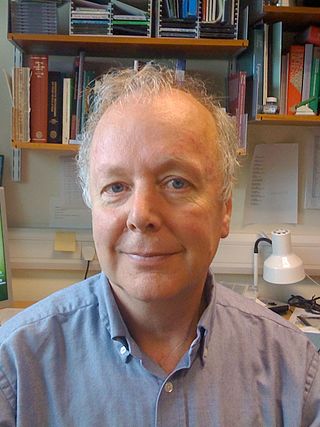Related Research Articles

Sir Hans Adolf Krebs, FRS was a German-born British biologist, physician and biochemist. He was a pioneer scientist in the study of cellular respiration, a biochemical process in living cells that extracts energy from food and oxygen and makes it available to drive the processes of life. He is best known for his discoveries of two important sequences of chemical reactions that take place in the cells of nearly all organisms, including humans, other than anaerobic microorganisms, namely the citric acid cycle and the urea cycle. The former, often eponymously known as the "Krebs cycle", is the sequence of metabolic reactions that allows cells of oxygen-respiring organisms to obtain far more ATP from the food they consume than anaerobic processes such as glycolysis can supply; and its discovery earned Krebs a Nobel Prize in Physiology or Medicine in 1953. With Hans Kornberg, he also discovered the glyoxylate cycle, a slight variation of the citric acid cycle found in plants, bacteria, protists, and fungi.

The Wellcome Sanger Institute, previously known as The Sanger Centre and Wellcome Trust Sanger Institute, is a non-profit British genomics and genetics research institute, primarily funded by the Wellcome Trust.

Ain Shams University is a public university located in Cairo, Egypt. Founded in 1950, the university provides education at the undergraduate, graduate and post-graduate levels.
Sir Peter James Donnelly is an Australian-British mathematician and Professor of Statistical Science at the University of Oxford, and the CEO of Genomics PLC. He is a specialist in applied probability and has made contributions to coalescent theory. His research group at Oxford has an international reputation for the development of statistical methodology to analyze genetic data.

Dame Kay Elizabeth Davies is a British geneticist. She is Dr Lee's Professor of Anatomy at the University of Oxford and a Fellow of Hertford College, Oxford. She is director of the Medical Research Council (MRC) functional genetics unit, a governor of the Wellcome Trust, a director of the Oxford Centre for Gene Function, and a patron and Senior Member of Oxford University Scientific Society. Her research group has an international reputation for work on Duchenne muscular dystrophy (DMD). In the 1980s, she developed a test which allowed for the screening of foetuses whose mothers have a high risk of carrying DMD.

Ain Shams University, Faculty of Medicine or School of Medicine, is a public Egyptian graduate school and one of the faculties of Ain Shams University. Now, it is one of the largest educational medical institutions in Africa and the Middle East. It was founded in 1947, making it the third oldest medical school in Egypt. It has promoted numerous programs of medical care to serve society, in addition to environmental development and continuous scientific research for local and international health.
It became part of Ain Shams University in the 1950s, when it was established after adding several faculty members. Each year, the faculty's different departmetns hold conferences dedicated to the recent advances in medical science.

Fawzia Abbas Fahim is an Egyptian biochemist and environmental biologist known for her work on the anti-tumoral effects of snake venom and iodoacetate. She is currently Professor of Biochemistry at Ain Shams University, Egypt. Fahim has also made important contributions to infant and occupational health, and pollution issues in Egypt.

Sir Adrian Peter Bird, is a British geneticist and Buchanan Professor of Genetics at the University of Edinburgh. Bird has spent much of his academic career in Edinburgh, from receiving his PhD in 1970 to working at the MRC Mammalian Genome Unit and later serving as director of the Wellcome Trust Centre for Cell Biology. His research focuses on understanding DNA methylation and CpG islands, and their role in diseases such as Rett syndrome.

M. R. S. Rao was an Indian scientist. He was awarded the fourth-highest civilian award, the Padma Shri, for Science and Engineering in 2010. From 2003 to 2013 he was president of Jawaharlal Nehru Centre for Advanced Scientific Research (JNCASR) in Bangalore, India.
John Andrew Todd FMedSci FRS is Professor of Precision Medicine at the University of Oxford, director of the Wellcome Center for Human Genetics and the JDRF/Wellcome Trust Diabetes and Inflammation Laboratory, in addition to Jeffrey Cheah Fellow in Medicine at Brasenose College. He works in collaboration with David Clayton and Linda Wicker to examine the molecular basis of type 1 diabetes.

Laurence Harris Pearl FRS FMedSci is a British biochemist and structural biologist who is currently Professor of Structural Biology in the Genome Damage and Stability Centre and was Head of the School of Life Sciences at the University of Sussex.
Eleftheria Zeggini is a director of the institute of translational genomics in Helmholtz Zentrum München and a professor at the Technical University of Munich (TUM). Previously she served as a research group leader at the Wellcome Trust Sanger Institute from 2008 to 2018 and an honorary professor in the department of health sciences at the University of Leicester in the UK.
S. Qasim Mehdi was a renowned Pakistani molecular biologist who worked in population genetics. He was a founding member of the Human Genome Diversity Project (HGDP) with prominent role in the initiation of this project at the Stanford University.

Dipankar Chatterji is an Indian molecular biologist and the Honorary Professor at Molecular Biophysics Unit, Indian Institute of Science, a multidisciplinary research institute under the Department of Science and Technology of the Government of India. He is known for his pioneering research on bacterial transcription. He is a recipient of Shanti Swarup Bhatnagar Prize and is an elected fellow of all the major Indian science academies. The Government of India awarded him the fourth highest civilian honour of the Padma Shri, in 2016, for his contributions to science and engineering.
Akhilesh Kumar Tyagi is an Indian plant biologist and the former director of National Institute of Plant Genome Research. Known for his studies on plant genomics and biotechnology, Tyagi is an elected fellow of all the three major Indian science academies namely Indian Academy of Sciences, Indian National Science Academy and National Academy of Sciences, India as well as The World Academy of Sciences and the National Academy of Agricultural Sciences. The Department of Biotechnology of the Government of India awarded him the National Bioscience Award for Career Development, one of the highest Indian science awards, for his contributions to biosciences in 1999.

Jonathan Laurence Marchini is a Bayesian statistician and professor of statistical genomics in the Department of Statistics at the University of Oxford, a tutorial fellow in statistics at Somerville College, Oxford and a co-founder and director of Gensci Ltd. He co-leads the Haplotype Reference Consortium.

Anton Gartner is a geneticist and biologist utilizing the nematode worm Caenorhabditis elegans as a model system He is a distinguished professor at the Ulsan National Institute of Science and Technology (UNIST) in Korea and is one of the two associate directors of the IBS Center for Genomic Integrity located on the UNIST campus.
Ali S. Hadi is an Egyptian American emeritus professor at Cornell University, USA. He was a former vice provost and director of graduate studies and research at American University, Cairo. He is the chairman and the founder of the Actuarial Science Program at the American University in Cairo. He is an elected member of the International Statistical Institute, the American Statistical Association and African Academy of Sciences.
Shoukry Hassan Sayed is an Egyptian professor of Applied Mathematics at the Department of Mathematics, College of Science University of Bahrain. He was the former Head of Mathematics Department, King Abdulaziz University, Jeddah, Saudi Arabia. He is a fellow of the Institute of Physics (London) and an elected member of African Academy of Sciences.
Ahmed Amin HamzaFAAS FRMS SPIE is an Egyptian emeritus professor of physics at the Faculty of Science, University of Mansoura. He was a former President and Vice President of the institution and an ex-President of the British University in Egypt. He is a member of African Academy of Sciences and a fellow of the institute of physics.
References
- ↑ El-Khamisy, Prof Sherif. "Prof. Sherif El-Khamisy, Author at Menarah". Menarah. Retrieved 28 June 2022.
- ↑ "Sherif El-Khamisy". www.zewailcity.edu.eg. Retrieved 28 June 2022.
- ↑ "El-Khamisy, Sherif, Professor". www.sheffield.ac.uk. 26 October 2021. Retrieved 28 June 2022.
- ↑ "Bot Verification". obadaprize.com. Retrieved 28 June 2022.
- 1 2 3 "Professor Sherif El-Khamisy, Director/Associate Dean (R & I) at the University of Bradford". www.bradford.ac.uk. Retrieved 28 June 2022.